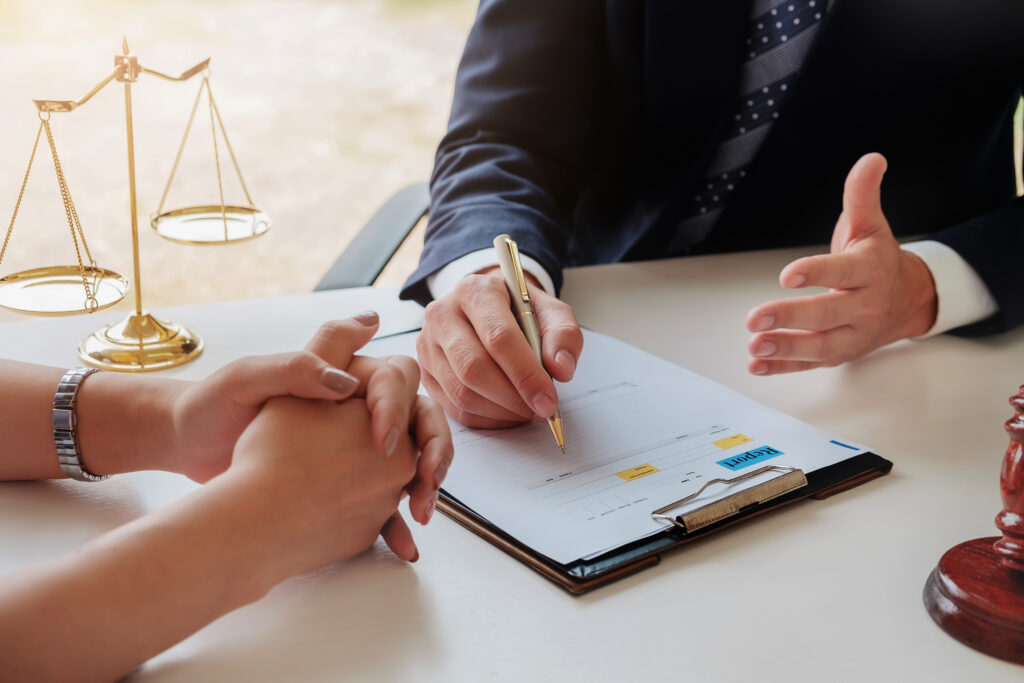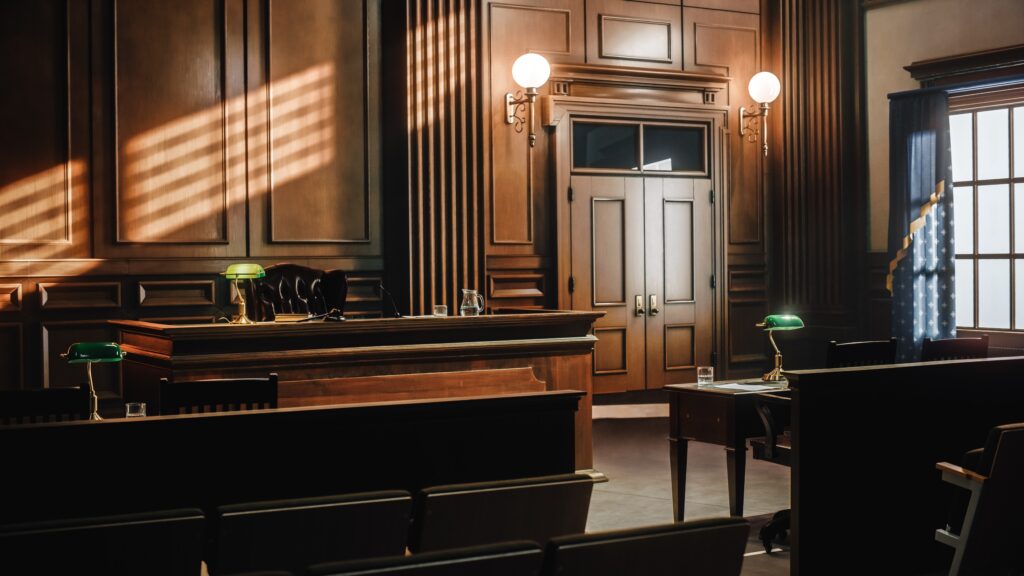If you've suffered an injury due to someone else's negligence or wrongdoing, you may be considering filing a personal injury lawsuit to seek compensation for your medical bills, lost income, pain and suffering, and other damages. One of the first questions many personal injury victims have is: how long will the legal process take?
The answer is that the timeline of a personal injury case can vary significantly depending on the specifics of your situation. Let's explore the key factors that influence the duration of a personal injury lawsuit and why it's important to have an experienced Jacksonville personal injury lawyer on your side.
Why Personal Injury Case Timelines Vary
No two personal injury cases are exactly alike. The length of time it takes to resolve your case will depend on a multitude of factors, including:
- The severity and extent of your injuries
- The complexity of your case
- Whether liability is clear-cut or disputed
- The amount of damages you are seeking
- The insurance company's willingness to negotiate a fair settlement
- The court's schedule and caseload if your case goes to trial
Given all these variables, a simple personal injury claim may be settled in months, while a more complicated case can take one to two years or longer to resolve. Let's look at each stage of a typical personal injury lawsuit.
Seeking Medical Treatment

The priority after any accident should be your health and well-being. Even if you feel okay in the immediate aftermath, it's wise to get checked out by a medical professional as soon as possible. Some injuries, like whiplash or traumatic brain injuries, may not present symptoms right away. Promptly seeking treatment protects your health and is valuable documentation of your injuries and their connection to the accident.
Be sure to attend all follow-up appointments, adhere to your treatment plan, and obtain copies of your medical records and bills. This paper trail will be essential evidence in your personal injury case. Depending on the nature and severity of your injuries, the medical treatment phase can last weeks, months, or even years in cases involving catastrophic harm or permanent disability.
Hiring a Personal Injury Lawyer
The next critical step is consulting with a skilled personal injury attorney. While you may be tempted to try to handle the legal claim on your own, going up against insurance companies without professional representation can be a costly mistake.
Insurers are notorious for employing tactics to minimize, delay, or deny valid injury claims. They have teams of adjusters, lawyers, and expert witnesses working to protect their bottom line - not your best interests.
An experienced personal injury lawyer can level the playing field and fight for the full and fair compensation you deserve. Look for an attorney with a proven track record of success handling similar cases, whether car accidents, slip and falls, medical malpractice, or other personal injury matters.
During your first meeting, your attorney will review the facts of your case, answer your questions, and advise you of your legal options. If they agree to take you on as a client, they will immediately start gathering evidence, identifying liable parties, and dealing with insurance companies on your behalf. Hiring a lawyer early can help your case proceed as efficiently as possible.
The Pre-Litigation Phase
With medical treatment underway and legal representation secured, your personal injury lawyer will enter the pre-litigation phase. At this stage, the goal is to build a strong case and hopefully negotiate a fair settlement without needing to file a formal lawsuit.
Key steps may include:
- Conducting a thorough investigation of the accident
- Interviewing eyewitnesses
- Consulting with expert witnesses such as accident reconstructionists or medical specialists
- Obtaining police reports, medical records, income loss documentation, and other evidence
- Calculating your total economic and non-economic damages
- Preparing a demand letter to send to the insurance company outlining your claim and damages
Depending on the complexity of your case and the insurance company's cooperation, the pre-litigation phase can take a few months to a year or more. If the insurer refuses to offer a reasonable settlement or denies liability, your lawyer may recommend filing a personal injury lawsuit to pursue your claim in court.
Filing a Lawsuit

If your personal injury case cannot be settled satisfactorily during pre-litigation, your attorney will prepare a complaint and file a lawsuit in the appropriate court. The filing of the complaint officially starts the litigation process, and important deadlines become considerations for your attorney.
Once the complaint is filed, your lawyer must serve a copy on the defendant. The defendant will then have a set period, usually 30 days, to file an answer or other response to the complaint.
If the defendant fails to respond, the court may enter a default judgment in your favor. More often, the defendant will hire a personal injury lawyer and file an answer denying some or all of the allegations in your complaint.
Discovery
The case enters the discovery phase after the complaint and answer are filed. Discovery is the formal process of exchanging information between the parties. The purpose is for each side to learn more about the other side's claims, defenses, and evidence.
Typical discovery methods include:
- Interrogatories: Written questions that must be answered under oath
- Document requests: Requests for production of relevant documents and records
- Depositions: Formal questioning of parties and witnesses under oath, usually conducted in person by the lawyers
- Independent medical examinations: Examination of the plaintiff by a doctor hired by the defense to assess the claimed injuries
- Expert reports: Written opinions from expert witnesses on technical or scientific issues in the case
The scope and duration of discovery will depend on your case's facts and legal issues. For example, a simple car accident case might have limited discovery that can be completed in a few months.
A complex product liability or medical malpractice case can have voluminous records to review and numerous facts and expert witnesses to depose, easily extending discovery to a year or more. Throughout the process, your personal injury lawyer will diligently gather the evidence to prove your claim and damages.
Settlement Negotiations
Most personal injury cases are resolved through out-of-court settlements rather than trials. Settlement talks can happen anytime during a case, from before a lawsuit is filed to the eve of trial. As discovery proceeds and each side gets a clearer picture of their cases' strengths and weaknesses, the lawyers will typically begin settlement negotiations in earnest.
Your personal injury attorney will advise you of any settlement offers received and provide guidance on whether the proposed amount is fair and reasonable, given the specific facts of your case. Ultimately, accepting or rejecting a settlement offer is up to you. Your lawyer will counsel you on the risks and potential outcomes of taking your case to trial, but they will respect your right to make the final call.
If a settlement is reached, the insurance company will require you to sign a release agreeing to dismiss your lawsuit in exchange for the settlement funds. Once the check clears, your personal injury case is resolved. If no settlement is forthcoming, the case will be set for trial.
Trial

The vast majority of personal injury lawsuits settle before reaching the trial stage. For those that advance to trial, the process can take anywhere from a day to several weeks or even months, depending on the complexity of the case and the court's schedule.
A personal injury trial consists of several phases:
Jury Selection
Before a personal injury trial can begin, a jury must be chosen. This process is known as voir dire. A large group of potential jurors is summoned to the courthouse. The judge and attorneys for both sides then ask the potential jurors questions to gauge their backgrounds, life experiences, and potential biases.
The goal is to select jurors who can be fair and impartial in deciding the case. The lawyers may ask about the jurors' occupations, hobbies, prior jury service, and opinions on issues related to the case. For example, in a car accident lawsuit, the attorneys might inquire about the jurors' driving habits, accident history, and views on personal injury claims.
Opening Statements
Once the jury is seated, the trial begins with opening statements from the lawyers. This is each attorney's first opportunity to introduce their client's story to the jury. Opening statements are not evidence but a roadmap of what each lawyer expects the evidence to show.
The jury's role is to listen carefully and keep an open mind throughout the opening statements. The judge will instruct them not to make any decisions until they have heard all the evidence. In the next phase of the trial, the actual evidence will be presented through witness testimony and exhibits.
Witness Testimony and Cross-Examination
The bulk of a personal injury trial is devoted to witness testimony. Witnesses can include:
- The parties (the plaintiff and defendant).
- Eyewitnesses to the accident.
- Treating physicians.
- Expert witnesses such as accident reconstructionists or economists.
Your attorney will call their witnesses first. This is known as direct examination. Your lawyer will ask questions to elicit information about the accident, your injuries, and the damages they are seeking. The witness's answers are evidence the jury can rely on in making their decision.
After your attorney finishes questioning a witness, the defense lawyer can cross-examine them. The purpose of cross-examination is to test the witness's credibility, highlight inconsistencies or gaps in their testimony, and bring out facts that support the defense's case.
Next, the defense presents their witnesses, and the process repeats with the defense attorney conducting direct examination and the plaintiff's lawyer cross-examining. Depending on the complexity of the case, witness testimony can take anywhere from a few hours to several weeks.
Throughout this phase, the jury's job is to carefully listen to the testimony, observe the witnesses' demeanor, and weigh the evidence. They are the sole judges of the credibility of the witnesses and the weight given to their testimony.
Closing Arguments
After all the evidence has been presented, the trial moves into the closing argument phase. This is each lawyer's final opportunity to persuade the jury to see the case their way.
Throughout the closing arguments, the jury listens carefully, taking notes and reflecting on the evidence they have heard. The judge will instruct them on the applicable law and their role in deciding the case.
Jury Deliberations and Verdict
After closing arguments, the judge gives the jury detailed instructions on the law they must follow in deciding the case. These instructions cover topics such as the burden of proof, the elements of negligence, and the damages that can be awarded.
Deliberations can last a few hours to several days, depending on the length and complexity of the trial. The jury may ask the judge questions or request to review certain evidence or testimony. If the jury becomes deadlocked and cannot reach a unanimous verdict, the judge may give additional instructions or declare a mistrial, meaning the case must be retried before a new jury.
Assuming the jury does reach a verdict, they will notify the judge, return to the courtroom, and the foreperson will read the verdict aloud. The jury will state the damages awarded if the verdict is in your favor. If the verdict is for the defense, you will receive no compensation.
The judge will then enter a judgment on the verdict, making it official. The losing party may file post-trial motions or an appeal, but absent any further action, the jury's decision is final and binding on the parties.
Contact a Personal Injury Lawyer Today
While the legal process may seem difficult, you don't have to face it alone. An experienced personal injury lawyer can guide you through every step, from gathering evidence and negotiating with insurers to advocating for your rights in court if needed.
Though there are no guarantees in litigation, having skilled counsel can greatly improve your chances of obtaining a favorable outcome in your case. If you're looking for a dedicated personal injury attorney to fight for you, reach out today for a free, no-obligation consultation.